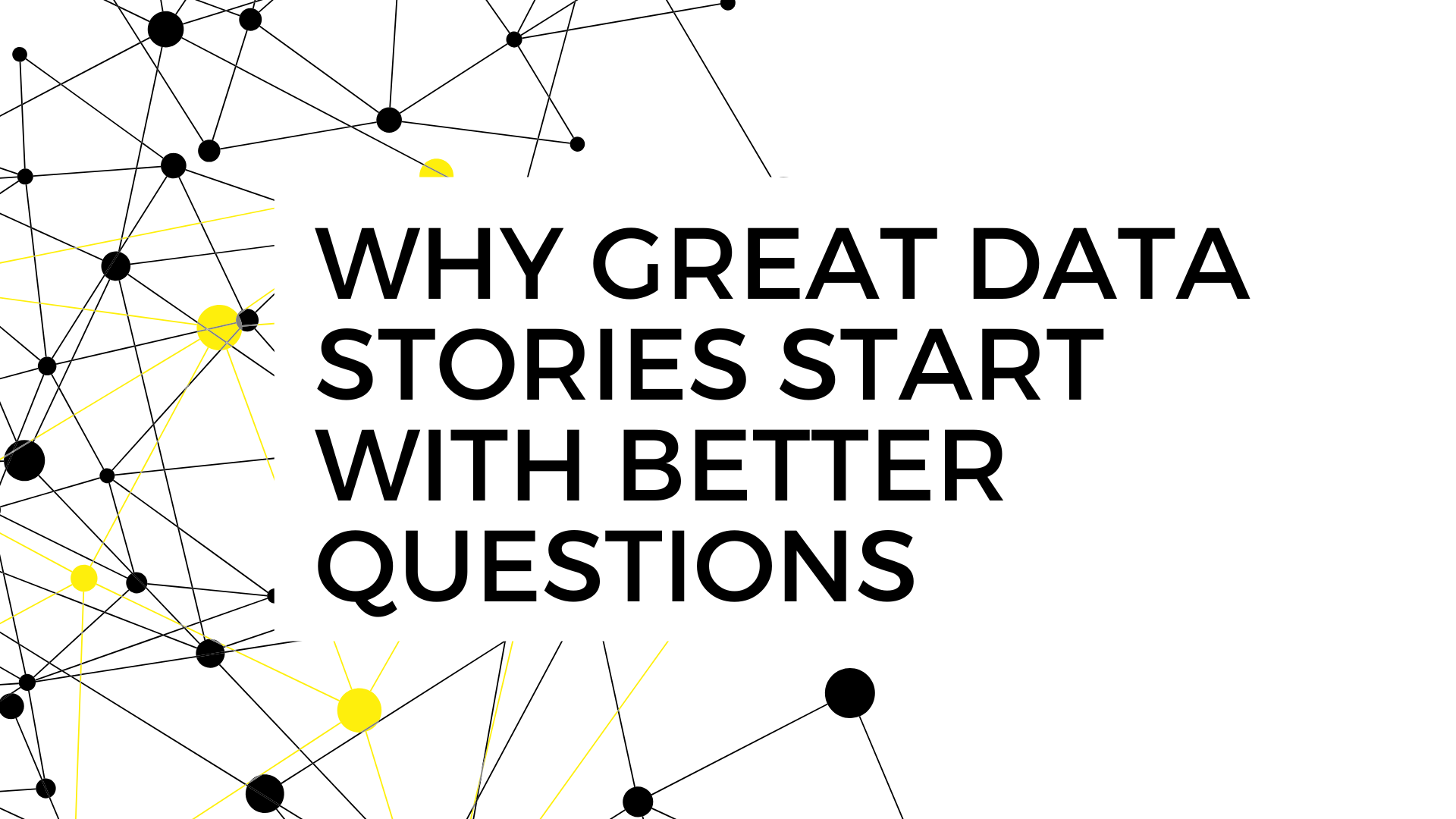Why Great Data Stories Start with Better Questions

A well-crafted question is like a compass. It doesn’t just tell you where to start. It also keeps you on track, guiding the entire analysis, shaping the narrative, and helping you decide what to leave out.
A great question:
Acts as the anchor for your story, giving clarity and direction.
Frames insights in a way that feels meaningful to your audience.
Distils vast amounts of information into the messages that matter most, cutting through noise and avoiding overload.
Opens the door to clear calls to action
But here’s the catch: stakeholders rarely arrive with great questions. Requests are often rushed, vague, or overly narrow: “Tell me everything we know.” “Give me the number.” “Why is this happening?” These can lead to hours of wasted analysis, because the brief itself is flawed.
The good news? Even a poor question gives you something to work with. If you pause, reflect, and apply some critical thinking, you can transform it into a better one - fast.
The anatomy of a great question
Every great question has three essential ingredients:
1. A clear objective
What exactly do we need to know?
Objectives usually fall into three categories:
- Explanatory (what happened?)
What has changed in the last quarter?
Where are the biggest opportunities to differentiate?
- Exploratory (why did it happen?)
Why are prospective customers dropping off at this stage?
Why are we losing share to competitor X?
- Action-oriented (what should we do next?)
How do we grow in this market?
How can we innovate to meet evolving needs?
2. Alignment to an end outcome
The question must connect to an outcome the audience truly cares about and one that’s feasible to achieve. In other words: not just what do we need to know? but why does it matter?
Outcomes typically fall into two camps:
Achieving a positive goal (e.g. hitting KPIs, gaining share, driving revenue).
Avoiding a negative risk (e.g. preventing losses, reducing churn, avoiding missed opportunities).
3. Prioritised focus
A great question defines clear boundaries. Are we talking about this quarter or this year? Segment A or the entire market? Existing customers or new ones?
Without focus, analysis sprawls. With it, insights sharpen.
From vague to valuable: real-life examples
Here are three examples of how average questions were transformed into great ones:
Example 1
Original question: Should we produce content on topic X?
- Great question: What is the appetite to engage with topic X among our loyal readers, and is it significant enough to positively impact advertising revenue?
Objective: Understand the size of the opportunity.
Outcome: Link to engagement metrics and revenue.
Focus: Loyal readers.
Example 2
Original question: How are consumers’ shopping habits changing?
- Great question: What are the top three shopping trends we must respond to now, to stay relevant to segment A and gain share of wallet over competitor X?
Objective: Identify priority trends.
Outcome: Competitive advantage.
Focus: Segment A.
Example 3
Original question: Why should we invest in paid social?
- Great question: What difference would a £x million paid social investment make to campaign X in terms of reach and ROI compared to other channels?
Objective: Assess relative performance.
Outcome: Drive campaign reach efficiently.
Focus: £x million budget.
Want to get to better questions?
The power of a better question isn’t just about sharper insight; it’s about changing behaviours. Teams that pause, challenge, and refine the brief before diving in consistently deliver analysis that feels more actionable, relevant, and valuable.
That’s why we don’t just train teams to create better slides for their data story. We work with them on transformation programmes that embed better ways of working throughout the workflow. Because building capability is one thing. Building habits is where the real impact lies.
If you’re ready to shift your team’s approach to data storytelling, we’d love to help. Connect with us via direct message.